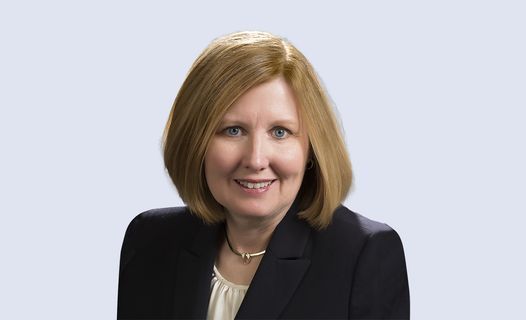New Jersey’s Governor Phil Murphy just issued executive orders easing some of the state’s COVID-19 restrictions and providing employers and businesses some much-welcomed flexibility. Executive Order 243, which becomes effective June 4, rescinds the telework or “work from home” mandate that has been in place since March 2020 and eases other requirements on businesses that operate private offices. Executive Order 242 – which went into effect on May 28 – eases many restrictions on businesses open to the public. What do you need to know about these significant changes?
Telework and Work-From-Home Mandates Rescinded
Executive Order 243 rescinds the mandates put in place in March 2020 via Executive Order 107 that required businesses and non-profits to reduce the number of staff onsite to the minimal number necessary to continue operations and accommodate their workforce for telework or work-from-home arrangements wherever practicable.
Indoor Private Workplaces
Effective June 4, in workplaces that are not open to the public, employers will no longer have to require employees who provide proof that they are fully vaccinated to wear face masks or social distance. If an employer cannot determine an employee’s vaccination status or if an employee is not fully vaccinated, employers must continue to require those employees to wear masks and practice social distancing in indoor spaces. Employers are permitted to continue requiring vaccinated employee to wear masks and social distance.
Different rules apply to customers, visitors, and other authorized individuals. Employers may allow them “to enter the worksite without requiring use of a mask or adherence to social distancing, regardless of their vaccination status.” However, employers may establish a policy that requires these individuals who enter the worksite to wear a mask and/or social distance as long as it complies with 1(b) of October 2020’s E.O. 192, which details masking requirements. Employers must still comply with enhanced cleaning protocols and other requirements of Executive Order 239 and Executive Order 192, including daily heath checks described in Paragraph 1(f) of that October 2020 order.
Indoor Workplaces Open to the Public
Effective as of May 28, individuals are no longer required to wear face masks or social distance in indoor public spaces. “Indoor public spaces” do not include child care centers, other child care facilities, youth summer camps, and public, private, and parochial preschool program premises, and elementary and secondary schools, including charter and renaissance schools. The social distancing requirements for these locations, and any applicable standards issued by the Commissioner of the Department of Health, remain in full effect.
Employers and entities overseeing indoor public spaces are permitted to impose stricter requirements regarding mask-wearing. They cannot, however, penalize or retaliate against any individuals who elect to wear a mask.
Food and Beverage Establishments
Executive Order 242 also removes the requirement that food or beverage establishments limit capacity to a number that ensures all patrons remain six feet apart. In addition, these establishments are no longer required to seat individuals or groups of individuals six feet apart. Moreover, patrons are allowed to place orders when not seated, consume food and beverages standing, and be served when not seated. Dance floors are also reopened under the order.
Healthcare Facilities
Executive Order 242 also clarifies that it does not supersede any masking or social distancing requirements currently in place in indoor or outdoor spaces in health care settings, including but not limited to long-term care facilities, home health care settings, and office-based health care settings, correctional facilities, homeless shelters, and on planes, buses, trains, and other forms of public transportation.
New Capacity Limits for Certain Businesses
Executive Order 242 permits the following businesses to operate at full capacity:
- Retail establishments;
- Personal care services;
- Health clubs and amusement and water parks;
- Recreational and entertainment businesses including pools, amusement parks, and water parks;
- Casinos, including casino gaming floors and retail sports wagering lounges; and
- Racetracks
Executive Order 242 also rescinds the capacity limits and requirement that all attendees at indoor gatherings be six feet apart from other attendees. Separate rules apply to workplaces that are not a public space. They are governed by Executive Order 243.
How Should Employers Proceed?
In light of the new executive orders, employers in New Jersey can increase the number of employees in the office. You must consider whether to continue your existing policies relating to face masks and social distancing or to relax them in view of CDC and OSHA Guidance.
If you opt to relax your policies for vaccinated employees, you must follow privacy laws and EEOC and New Jersey Division on Civil Rights guidance when inquiring about vaccine status and maintaining related records. We have created a blueprint for employers on how to overcome risks and hurdles regarding mask mandates and vaccine inquiries.
Finally, you must continue cleaning protocols required by the CDC and prior executive orders in your workplaces and maintain protocols regarding daily health checks for employees.
In sum, although New Jersey has relaxed its social distancing and mask mandates, you should monitor the situation on an on-going basis to assure you are adhering to the most up-to-date guidance from the CDC and OSHA and other agencies.
Conclusion
Fisher Phillips will continue to monitor the rapidly developing COVID-19 situation and provide updates as appropriate. Make sure you are subscribed to Fisher Phillips’ Insight System to get the most up-to-date information. For further information, contact your Fisher Phillips attorney or any attorney in our New Jersey office.


